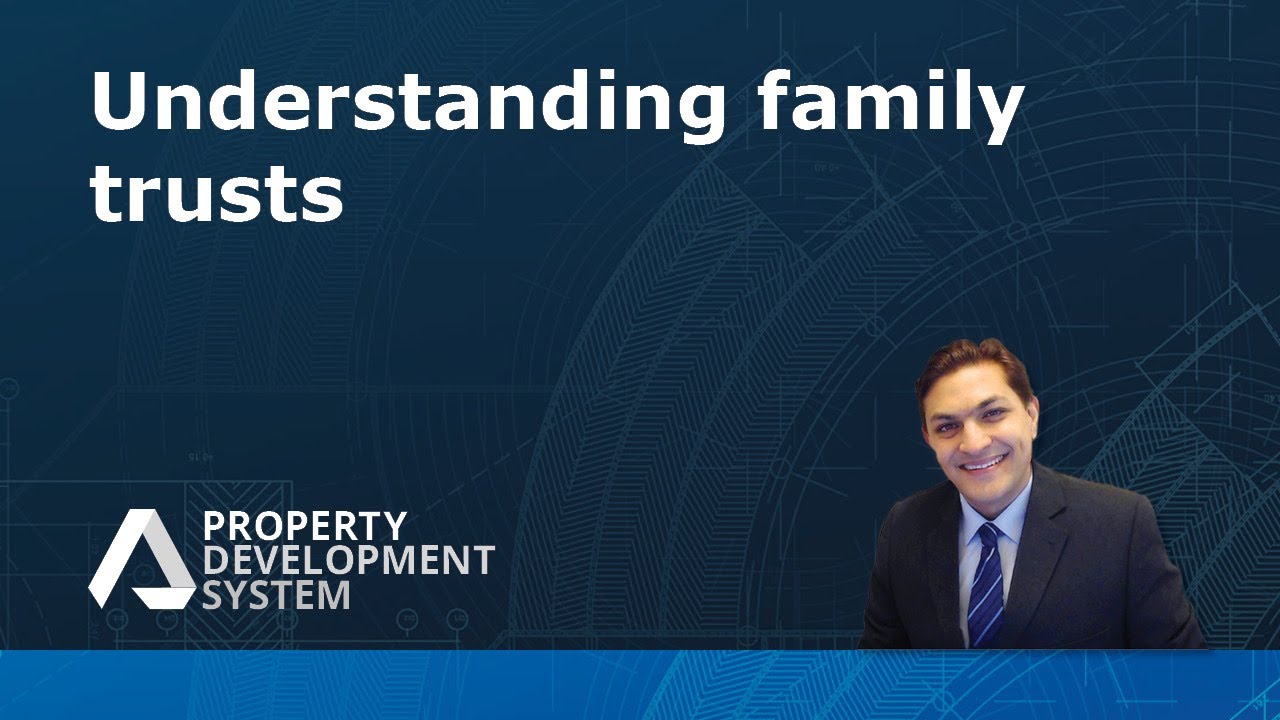Family Trusts
A family trust, also known as a discretionary trust, is a legal entity designed for asset protection, tax planning, and estate management. It involves a trustee, who has the discretion to distribute income to beneficiaries based on a legally binding trust deed.
Trust Structure
Utilises a corporate or individual trustee. Family trusts, or discretionary trusts, involve a corporate trustee overseeing the trust’s operations.
Beneficiaries
It can include individuals like spouses, with appointers holding significant powers defined by the trust deed.
Discretionary
The trustee decides income distribution, restricted to profits only. Losses cannot be distributed unless explicitly allowed by the trust deed.
Legal Importance
Trust effectiveness hinges on the specific trust deed, underscoring the need for personalized legal advice.
Advantages
Offers asset protection, tax minimizstion, and aids in retirement and estate planning.
Frequently Asked Questions
What are the roles and responsibilities of a trustee in a family trust?
The trustee in a family trust holds significant responsibilities, primarily overseeing the trust’s operations in accordance with the trust deed. This includes making decisions on income distribution among beneficiaries and ensuring that only profits are distributed.
The trustee’s actions must align with the provisions in the trust deed, highlighting the role’s legal and fiduciary importance. Trustees can be either corporate entities or individuals tasked with managing the trust’s assets responsibly to benefit the designated beneficiaries.
How does a discretionary trust benefit from tax minimisation strategies?
Discretionary trusts, or family trusts, offer a flexible way to manage and distribute income among beneficiaries, which can lead to efficient tax minimisation strategies. Since the trustee has the discretion to decide who receives what portion of the trust’s income, it allows for the optimisation of tax liabilities among beneficiaries.
This flexibility can result in lower tax payments for the family unit by distributing income to those in lower tax brackets, thereby maximising the financial benefits of the trust structure for tax planning purposes.
What are the critical factors to consider when drafting a trust deed?
Clarity in Powers and Appointments
The trust deed must clearly outline the powers conferred upon the appointer and the trustee, including the authority to appoint or remove trustees.
Distribution Rules
It should specify the conditions under which income and profits can be distributed to beneficiaries, explicitly stating if and how losses can be managed.
Beneficiary Interests
The deed needs to detail who the beneficiaries are and under what circumstances they qualify for distributions.
Legal Compliance
Ensuring the trust deed complies with relevant laws and regulations is paramount to avoid legal challenges.
Customisation to Needs
The trust deed should be tailored to reflect the trust creator’s specific intentions and requirements, ensuring that it effectively addresses their estate planning, asset protection, and tax minimization goals.
What is a family trust?
A family trust, also known as a discretionary trust, is a legal arrangement created to manage assets, assist in tax planning, and facilitate estate management. It is characterised by the presence of a trustee, who is granted the authority to distribute the trust’s income to beneficiaries in accordance with the rules set out in the trust deed.
Who can be a trustee in a family trust?
A family trust trustee can be an individual or a corporate entity. This trustee is responsible for overseeing the trust’s operations, making key decisions, and managing its assets in the best interest of the beneficiaries.
Who are the beneficiaries of a family trust?
Beneficiaries of a family trust can include family members such as spouses, children, and potentially other individuals specified in the trust deed. The scope of who can be a beneficiary is defined by the trust deed, which is the legal document that outlines the rules and structure of the trust.
What does it mean that a family trust is discretionary?
Being discretionary means that the family trust trustee has the authority to decide how the trust’s income is distributed among the beneficiaries. This discretion allows for flexible management of the trust’s assets, including who receives income and when. However, it’s important to note that while income can be distributed at the trustee’s discretion, losses cannot be distributed unless the trust deed explicitly allows it.
Why is the trust deed necessary?
The trust deed is crucial because it outlines its operation’s specific terms, conditions, and rules. Its importance lies in ensuring that the trust operates effectively and according to the grantor’s intentions. It is highly recommended to seek personalised legal advice when drafting or interpreting a trust deed to ensure its effectiveness and legal compliance.
What are the main advantages of setting up a family trust?
The primary benefits of establishing a family trust include asset protection from creditors or legal disputes, potential tax minimisation strategies through income distribution, and assistance in retirement and estate planning. These advantages make family trusts a valuable tool for financial management and estate planning.
Can a family trust distribute losses to beneficiaries?
Generally, a family trust cannot distribute losses to beneficiaries. The distribution is usually restricted to the profits generated by the trust’s assets. However, if the trust deed explicitly allows for the distribution of losses, then it may be possible. This is why the specific terms of the trust deed are vital in determining what is and isn’t allowable within the trust’s operations.
Who holds significant powers in a family trust?
In a family trust, the appointer(s) or the trustee often holds significant powers. The appointer has the authority to appoint or remove trustees, giving them significant influence over the trust’s management. The specific powers and roles of the appointer and trustee are defined by the trust deed, highlighting this document’s importance in the trust’s structure and operation.
Test Your Knowledge
Multiple-Choice Questions on Family Trusts
1. What legal entity is designed for asset protection, tax planning, and estate management?
A) Limited Liability Company
B) Partnership
C) Family Trust
D) Corporation
2. Who has the discretion to distribute income to beneficiaries in a family trust?
A) The Beneficiaries
B) The Trustee
C) The Appointer
D) The Lawyer
3. Which of the following can NOT be a trustee in a family trust?
A) An individual
B) A corporate entity
C) A beneficiary
D) All of the above can be trustees
4. In a family trust, income distribution is:
A) Fixed and equal among all beneficiaries
B) Determined annually by the beneficiaries
C) At the discretion of the trustee, based on the trust deed
D) Restricted to corporate beneficiaries only
5. What document is crucial for outlining the operations, rules, and structure of a family trust?
A) The Will
B) The Trust Deed
C) The Beneficiary Agreement
D) The Corporate Charter
6. A family trust’s advantages include all of the following EXCEPT:
A) Speedy asset liquidation
B) Tax minimization
C) Asset protection
D) Aids in retirement and estate planning
7. Which statement about the distribution of losses in a family trust is true?
A) Losses are distributed equally among all beneficiaries
B) Losses can be distributed at the trustee’s discretion
C) Losses cannot be distributed unless explicitly allowed by the trust deed
D) Losses are always distributed to the appointer
8. Who typically holds significant powers in a family trust?
A) The Trustee
B) The Beneficiaries
C) The Appointer
D) Both A and C
Answers:
- C) Family Trust
- B) The Trustee
- C) A beneficiary
- C) At the discretion of the trustee, based on the trust deed
- B) The Trust Deed
- A) Speedy asset liquidation
- C) Losses cannot be distributed unless explicitly allowed by the trust deed
- D) Both A and C
Assignment
Exploration of Family Trusts
Objective:
This assignment aims to deepen your understanding of family trusts, including their structure, operation, and advantages. By completing this exercise, you will gain practical insights into how family trusts function as a tool for asset protection, tax planning, and estate management.
Instructions:
Complete the following tasks, applying critical thinking and research skills where necessary. This assignment may require you to reference external sources for more detailed explanations or examples. Please cite any sources you consult.
Questions and Tasks:
1. Define and Discuss:
Write a brief essay (300-500 words) on the importance of family trusts in asset protection and estate planning. Discuss how a family trust can provide financial security for future generations.
2. Case Study Analysis:
Research and summarise a real-life case study involving a family trust. Focus on the structure of the trust, the roles of the trustee and beneficiaries, and the outcomes of the trust’s establishment. Discuss any challenges faced and how they were overcome.
3. Comparative Analysis:
Compare and contrast a discretionary trust with a unit trust. Highlight the key differences in their structure, income distribution, and advantages each offers to the settlor and beneficiaries.
4. Role Play Exercise:
Assume the role of a trustee of a newly established family trust. Draft an action plan outlining the steps you would take in the first year of operation, including how to decide on income distribution and manage the trust’s assets.
5. Legal Framework:
Investigate and report on the legal requirements for establishing a family trust in your jurisdiction. Include information on the necessary documentation, legal compliance, and any specific regulations governing trustees and beneficiaries.
6. Trust Deed Analysis:
Create a hypothetical trust deed for a family trust. Ensure that you include clauses that specify the trustee’s powers, the appointment of beneficiaries, the distribution of income (and conditions under which losses can be distributed), and any other relevant sections that demonstrate your understanding of the importance of a trust deed.
7. Discussion Forum:
Participate in a discussion forum with your peers. Share your findings from the case study analysis and respond to at least two other posts, providing constructive feedback or raising questions for further discussion.
8. Reflection Paper:
Write a reflection paper on what you have learned about family trusts. Discuss how this knowledge could be applied in your own life or in a professional context. Reflect on the role of legal advice in the establishment and management of family trusts.
Research Questions:
- How does the taxation of family trusts work, and what strategies are typically employed to minimise tax liability?
- What are the implications of a trust deed’s specifications on the distribution of assets upon the settlor’s death?
- How do different jurisdictions handle the concept of “appointers” within family trusts, and what legal powers do they typically hold?
Submission Guidelines:
- Compile your answers and tasks in a single document.
- Ensure your work is well-organized, clearly written, and free of grammatical errors.
- Cite all sources used for research in a bibliography at the end of your document.
- Submit your assignment through the mail or comments.



